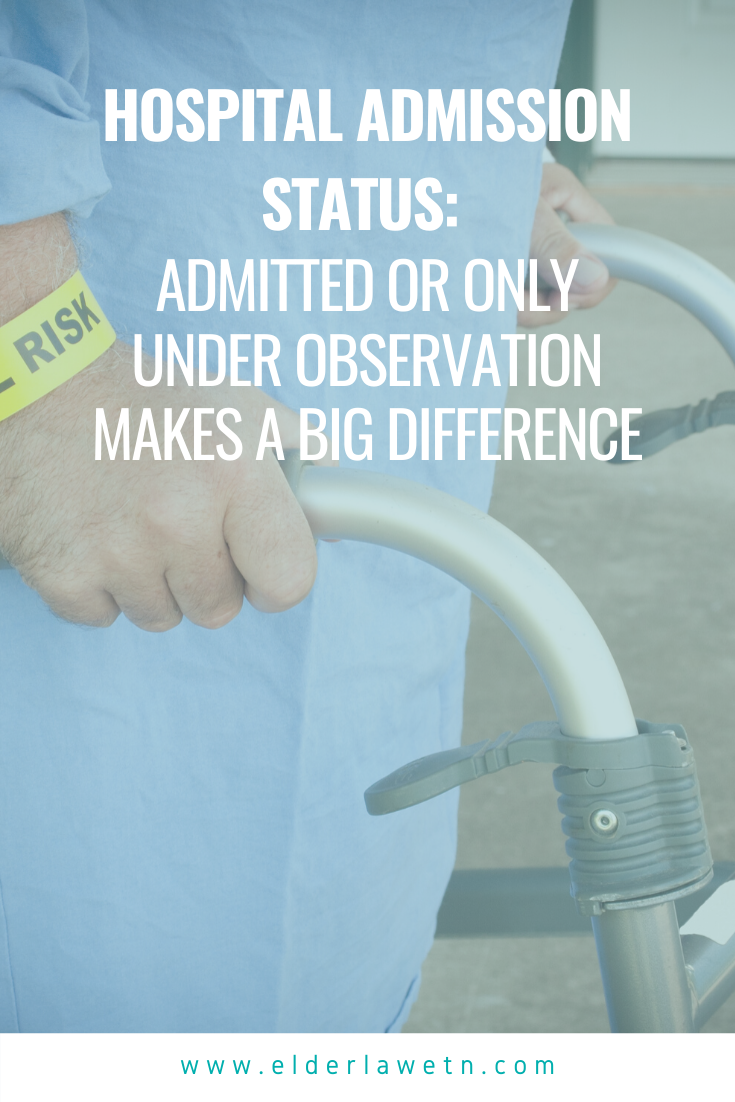You are wearing the plastic id bracelet on your arm, you are in the bed, and you are being cared for by healthcare professionals wearing name badges from your local hospital. All the external clues tell you that you are in the hospital. Physically speaking, that may be true. However, you may not actually be admitted to the hospital. You may only be under observation.
With increasing frequency hospitals are providing multiday treatment for patients they are classifying as outpatients. The treatment you get may look exactly the same as what the person in the next bed is getting. The difference is you are under observation status while your roommate is, in fact, admitted. The real kicker is that your admission status may be switched retroactively!
A lot is at stake for Medicare beneficiaries, who are mostly elderly and may not be in the best position to advocate for themselves during a hospitalization. Hospital fees normally covered under Medicare Part A may be billed to the beneficiary. Equally devastating, an older adult needing rehabilitation in a skilled nursing facility may find Medicare denying coverage for the cost of their treatment because they were not designated as an inpatient during their hospital stay.

The Center for Medicare Advocacy, Inc.’s article “Observation Service: What Can Beneficiaries and Advocates Do?” provides detailed information to help beneficiaries and their advocates take heart and take action if it looks like the admission status has been inappropriately classified as observation or outpatient.
With all that the elderly and their caregivers have to cope with during any medical event, this is one headache they could do without. It is just one of those things that I deal with routinely as Elder Law of East Tennessee’s Elder Care Coordinator.

